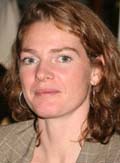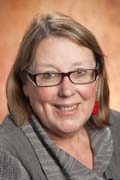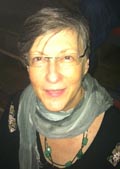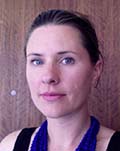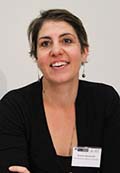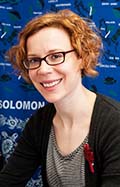 |
Felicity Aulino is a medical anthropologist and ethnographic filmmaker, with primary area specialization in Thailand and a research focus on care for the elderly—particularly in relation to public health related statecraft, international humanitarian intervention, and caregiver subjectivity. She received her PhD in Anthropology from Harvard University in 2012 and her MPH in Health Behavior and Health Education from the University of North Carolina at Chapel Hill School of Public Health. She is currently a Mellon Postdoctoral Fellow in the Department of Anthropology at the University of Massachusetts Amherst and the Five College Consortium Program in Culture, Health, and Science.
|
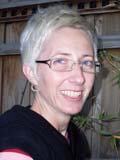 |
Tanya Caulfield was awarded her PhD in the field of Anthropology by the University of Queensland. Her doctoral research considered different female sexualities and lived experiences with regard to unmarried women in India. She obtained her Masters degree, which focused on the dowry violence phenomenon in India, from Monash University in the field of Women's Studies. Tanya has worked with many women's organisations and NGOs in India and several international humanitarian and development agencies, undertaking research on humanitarian and development issues. Her research interests include sexuality, gender, difference and identity in India. Tanya is currently working at the Nossal Institute for Global Health at the University of Melbourne.
|
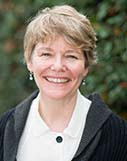
|
Hilary Charlesworth is an Australian Research Council Laureate Fellow and Director of the Centre for International Governance and Justice in the Regulatory Institutions Network at the Australian National University (ANU). She also holds an appointment as Professor of International Law and Human Rights in the ANU College of Law. Her research interests are in international law and human rights law. She has worked with non-governmental human rights organisations on ways to implement international human rights standards and was chair of the ACT Government's inquiry into an ACT bill of rights, which led to the adoption of the ACT Human Rights Act 2004. She is Judge ad hoc of the International Court of Justice in the Whaling in the Antarctic case (Australia v Japan).
|

|
Jane M. Ferguson is currently a Research Fellow in the Anthropology Department at the University of Sydney. She completed her dissertation, 'Rocking in Shanland: Histories and Popular Culture Jams at the Thai-Burma Border,' at Cornell University in 2008, having carried out fieldwork amongst Shan insurgents and their affiliates on issues of ethno-nationalist history and popular culture re-signification. She taught Mainland Southeast Asian History in the school of Culture, History and Languages at the Australian National University, and has published articles on topics ranging from conflict and insurgency, to Northern Thai Bluegrass musicians, to the history of Shan representation in Burmese Cinema.
|
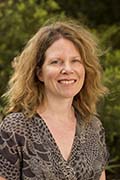
|
Miranda Forsyth is a Research Fellow at RegNet in the College of Asia and Pacific at the Australian national University. In February 2011 she commenced a three year ARC Discovery-funded project to investigate the impact of intellectual property laws on development in Pacific Island countries. Prior to coming to RegNet, Miranda was a senior lecturer in criminal law at the law school of the University of the South Pacific, based in Port Vila, Vanuatu for eight years. Miranda's research interests include legal pluralism, customary law, and South Pacific criminal law. She is the author of A Bird that Flies with Two Wings: Kastom and State Justice Systems in Vanuatu (ANU E Press, 2009).
|
